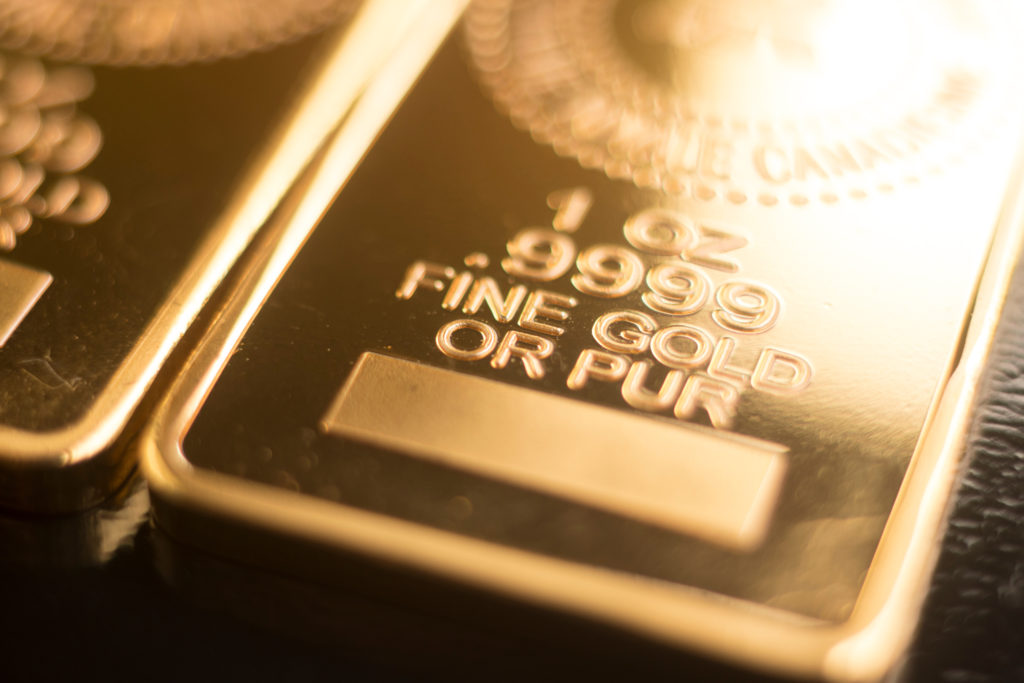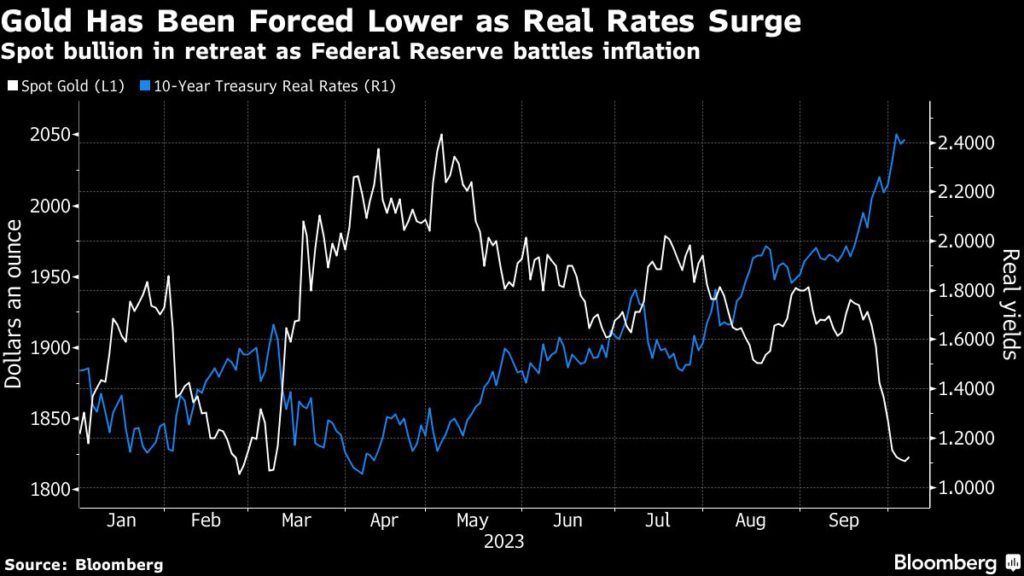Out-of-favor gold attractive as risks mount, Nikko AM says

Gold’s recent tumble has made it more attractive in an environment in which elevated interest rates boost the odds of unexpected market ructions, according to Nikko Asset Management.
The retracement has pushed some of the froth out of the market, and it’s prudent to own some of the precious metal, according to Robert Samson, global head of multi-asset at Nikko Asset Management, who has about $1.5 billion across two mandates domiciled in Japan and Singapore. There’s a “decent chunk” of gold at around 6% to 8% of the Japanese portfolio, which has benefited from the yen’s weakness, he said.

Gold has been driven lower in recent months as the US Federal Reserve hiked interest rates to quell inflation, with investors absorbing the message from policymakers that borrowing costs are likely to be higher for longer. That’s aided the US dollar and fed a dramatic surge in benchmark 10-year Treasury yields, cutting bullion’s allure. Against that backdrop, holdings in gold-backed exchange-traded funds have hit the lowest in more than three years.
“We don’t have the speculative juice there, which means we’re relatively at fair value,” Samson said in an interview. “It’s a funny macro world, which makes gold not such a bad place to be, particularly since no one’s really terribly interested. That’s usually the time you want to have some.”
After topping $2,000 an ounce as recently as May, gold then posted back-to-back quarterly losses to erase year-to-date gains. Spot bullion hit the lowest level since March this week, and last traded at about $1,820 an ounce.
While some may still see gold as overvalued against bonds, it’s a sensible time to own it now, according to Samson. There’s likely to be a “significant tailwind” as central-bank tightening first nears a peak, then policy becomes more accommodative in response to potential risks, he said.
“Every day that we sit here with rates as high as they are, as quickly as they got there, with real rates particularly high — the stress of the system — that’s a big part of why we see it as a protective asset,” Samson said. “So it’s a weird dynamic, and an uncomfortable one.”
(By Sybilla Gross)
{{ commodity.name }}
{{ post.title }}
{{ post.date }}




Comments